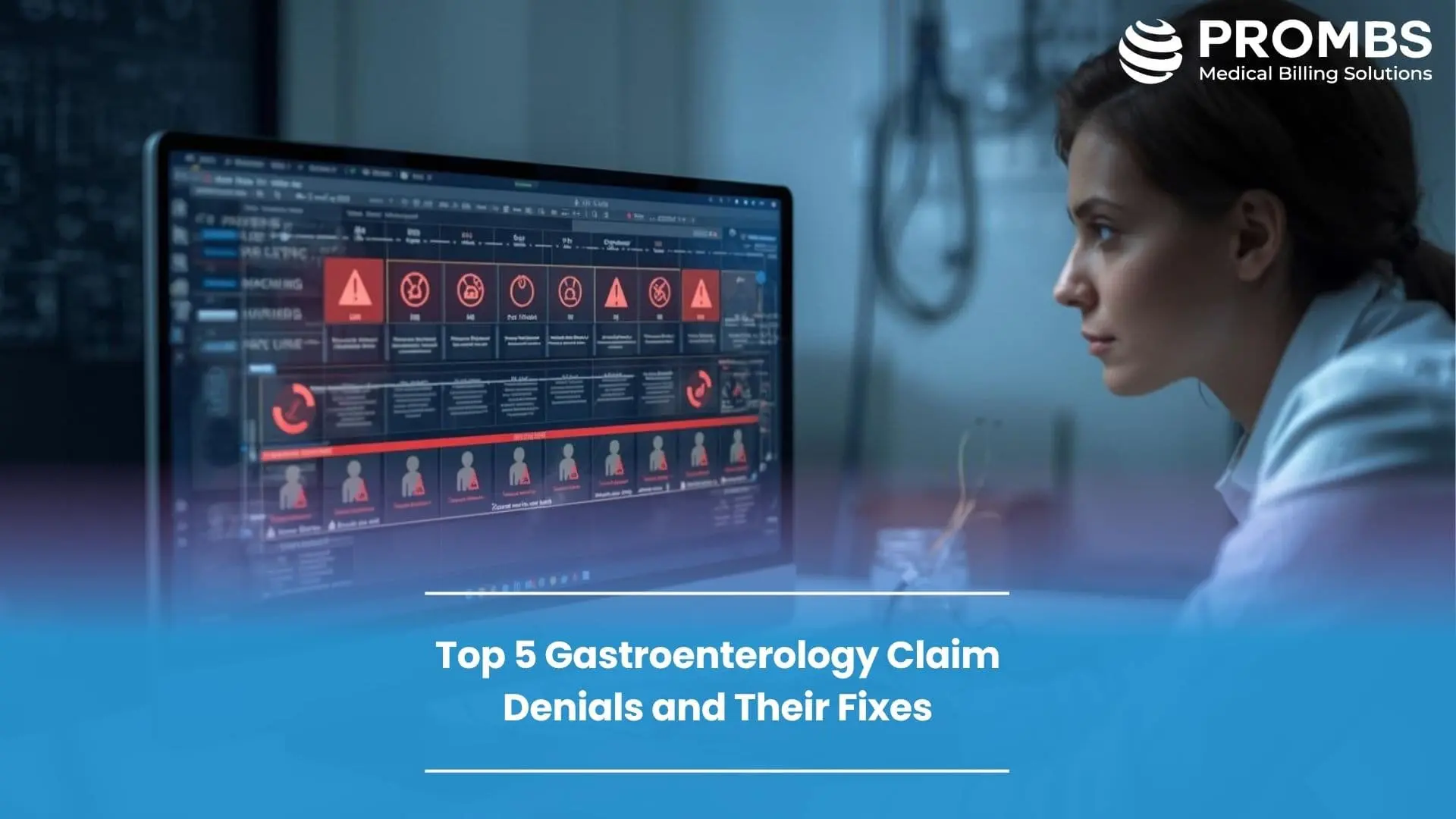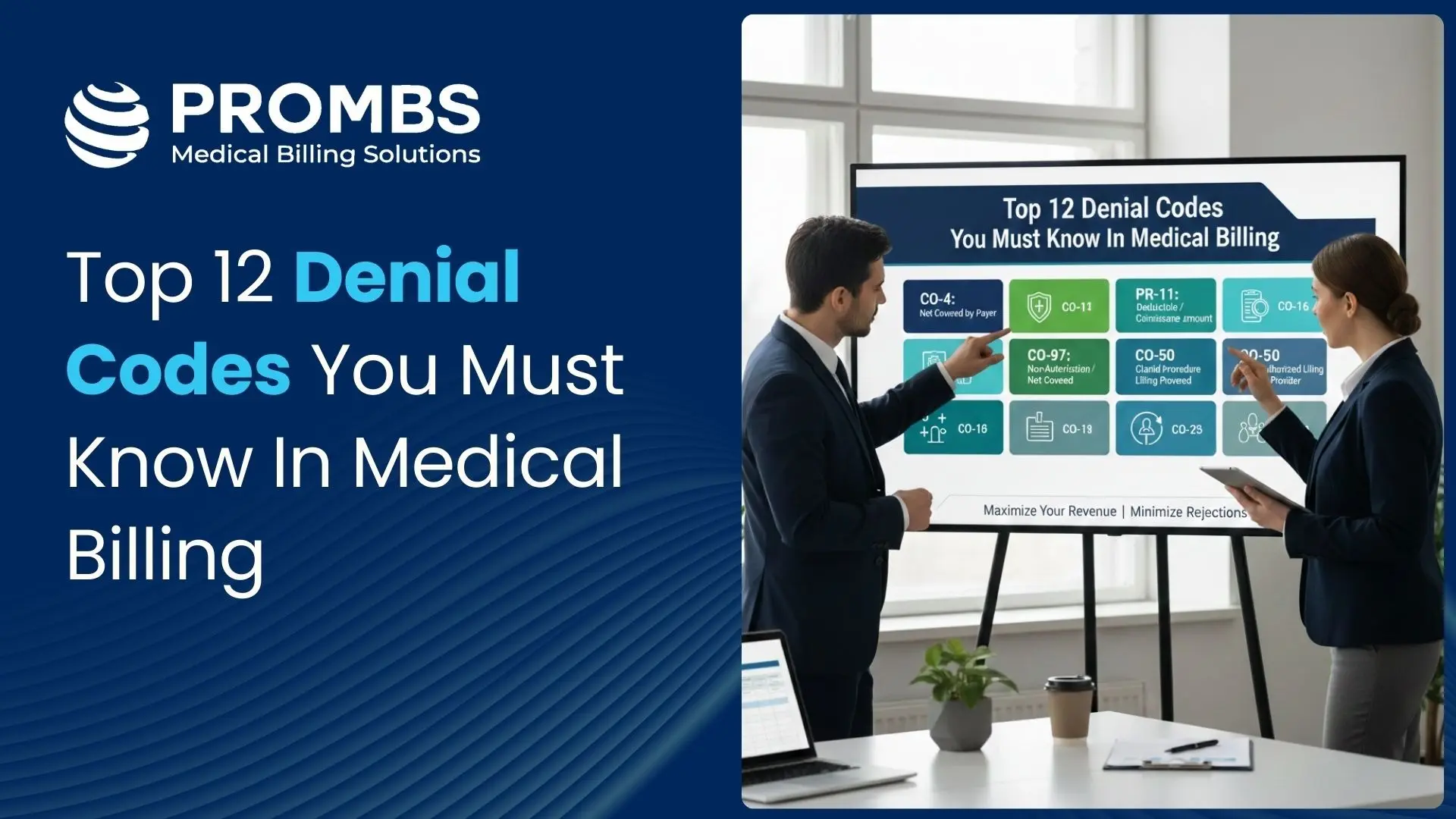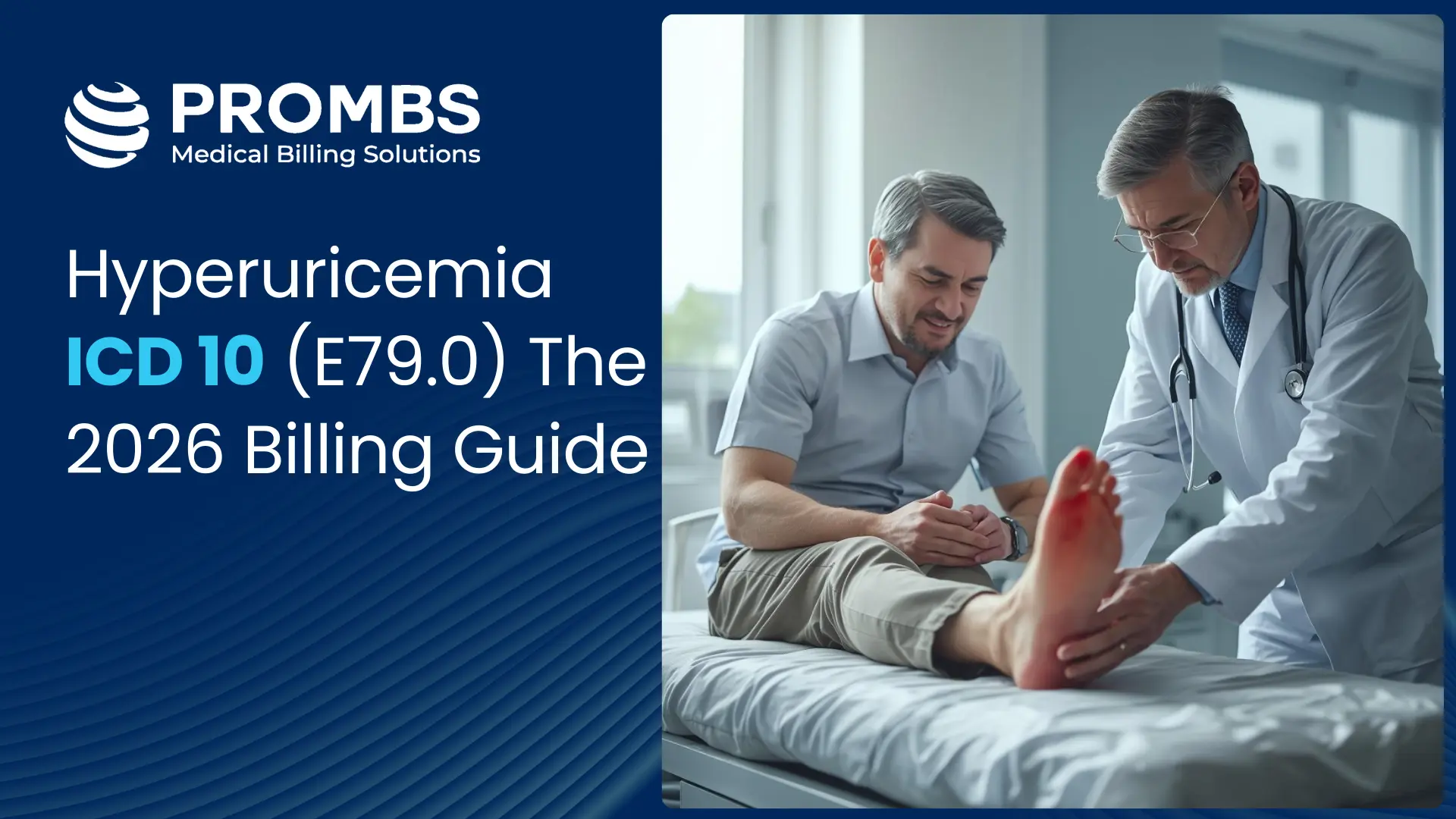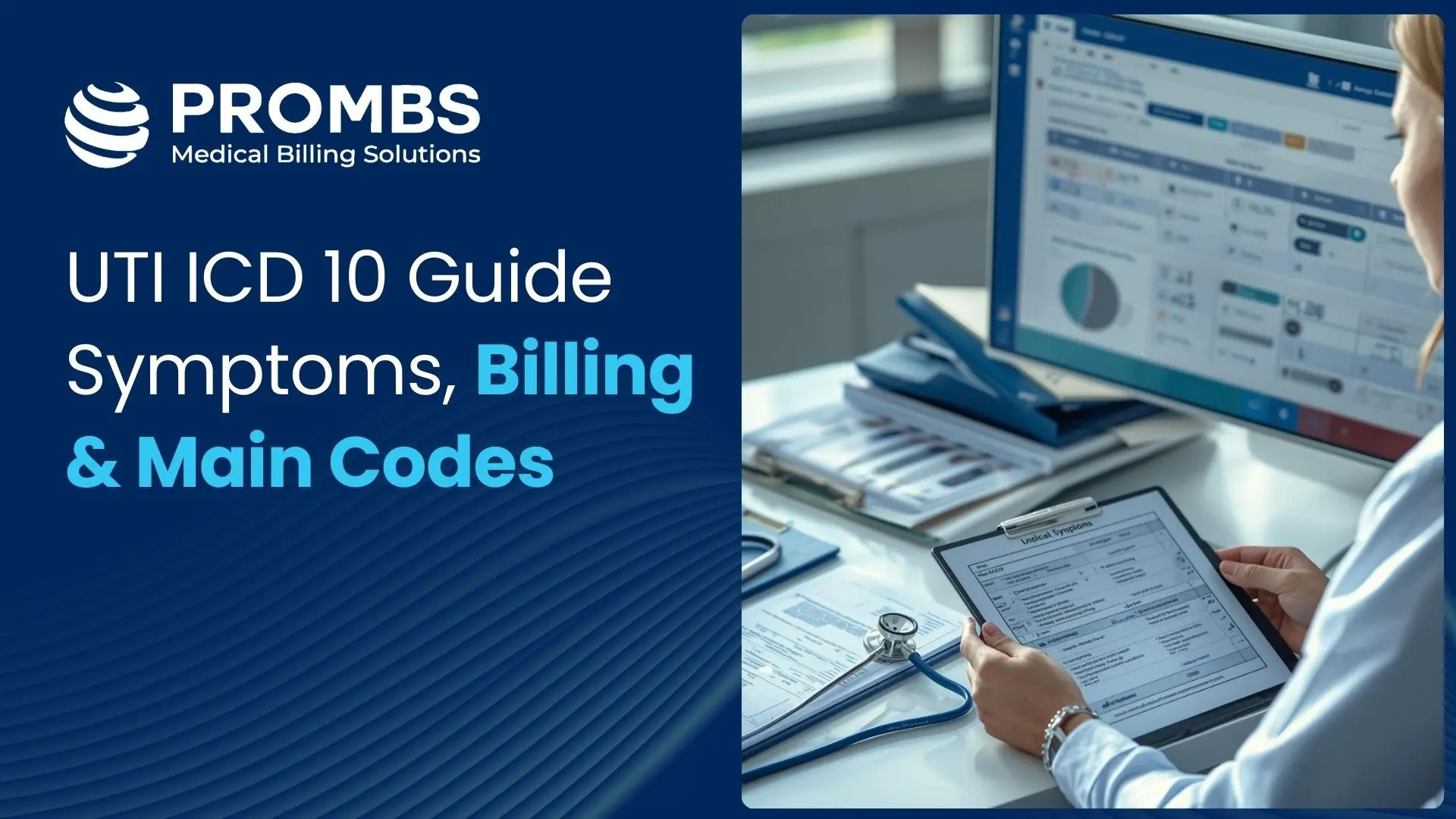Gastroenterology claim denials are not only simple administrative errors as they represent financial and compliance bottlenecks that directly affect your cash flow and revenue integrity. Gastroenterology remains one of the most complex specialties for billing professionals because of its high procedural volume, dependencies of modifier as well as payer-specific coding requirements that every time demand consistent accuracy and documentation precision.
Even a small coding or documentation error in gastroenterology billing can cost you cascading denials, increase your staff’s rework, and lead to measurable revenue leakage across the revenue cycle. These issues only occur when teams rely on outdated coding references or fail to align clinical documentation with payer-specific coverage rules, creating delays in reimbursement and compliance exposure.
On the other hand, according to the Healthcare Financial Management Association (HFMA), up to 15% of outpatient specialty claims face preventable denials related to coding, modifier, or authorization inconsistencies. Partnering with professional gastroenterology billing services can help practices strengthen their claim accuracy, reduce administrative rework, and maintain compliance across super complex payer environments.
Incorrect Classification Between Screening, Diagnostic, and Surveillance Colonoscopy
Colonoscopy classification errors remain one of the most frequent causes of GI denials. Payers distinguish carefully between screening, diagnostic, and surveillance procedures. However, the wrong classification can result in rejection or incorrect patient cost-sharing. A screening colonoscopy applies to preventive, asymptomatic cases and diagnostic colonoscopy applies when symptoms or abnormal findings are present. Surveillance colonoscopy practice is only for patients with a personal history of polyps or colorectal cancer.
As you know, accurate classification determines whether the payer processes a colonoscopy as preventive or diagnostic. Even a minor documentation mismatch can shift costs to the patient and trigger payer denials. Understanding classification criteria and correct modifier use helps maintain compliance with CMS and commercial payer policies as given in the below table.
| Type | Description | Key Modifier | Common Error | Fix |
|---|---|---|---|---|
| Screening | Preventive, asymptomatic service for early detection of colorectal conditions. | 33 (commercial) or PT (Medicare) | Diagnostic code used instead of preventive code. | Ensure documentation specifies screening purpose and apply the correct modifier. |
| Diagnostic | Performed due to symptoms or abnormal findings (e.g., bleeding, pain, positive FIT test). | N/A | Missing ICD-10 linkage between findings and procedure. | Validate ICD-10 diagnosis linkage before submission. |
| Surveillance | Follow-up colonoscopy for prior polyps or colorectal cancer history. | PT (Medicare) | Incorrectly billed as screening. | Use Z86.010 (history of polyps) or Z85.038 (history of colorectal cancer) when applicable. |
When a screening colonoscopy converts to diagnostic during the procedure, modifier PT for Medicare or modifier 33 for commercial payers must be appended. If failed to apply these modifiers, it will lead to payer confusion about patient responsibility and frequent underpayments. As noted by the Centers for Medicare & Medicaid Services (CMS) in the Medicare Claims Processing Manual, the proper use of PT and 33 ensures correct cost-sharing for preventive versus diagnostic outcomes. The American Gastroenterological Association (AGA) reinforces this guidance as well as advises coders to review LCD and NCD criteria before claim submission to avoid reclassification denials.
Missing or Incorrect Modifiers in Gastroenterology Billing
Modifier mismanagement is one of the top causes of denials in gastroenterology billing. Modifiers communicate essential procedural context, and any omission or misuse can result in bundling errors and payer edits accompanied with underpayments.
Common Modifier Scenarios and Fixes in Gastroenterology Billing
This table outlines all the key modifier utilization scenarios in gastroenterology billing, explaining their purposes, common compliance errors, as well as corrective coding actions, which are required to maintain claim accuracy and payer compliance.
| Modifier | Purpose | Common Error | Fix / Best Practice |
|---|---|---|---|
| 59 | Identifies a distinct procedural service not normally reported together on the same day. | Applied without proper justification or documentation. | Use only when procedures typically bundled are performed at different sites or sessions.
Example: EGD (43239) and esophageal dilation (43248) done at separate locations should include modifier 59. |
| 26 / TC | Separates the professional (26) and technical (TC) components of diagnostic services. | Both components billed on the same claim without distinction, causing denials or duplicate payments. | Apply modifier 26 for professional interpretation and modifier TC for technical components.
Reference: CMS Physician Fee Schedule. |
| 51 | Indicates multiple procedures performed during the same session by the same provider. | Added when payer already applies multiple-procedure reductions automatically. | Check payer-specific policy before using modifier 51.
Some payers handle multiple procedures automatically without requiring it. Reference: AMA CPT Modifier Guidelines. |
Compliance and Audit Guidance
Maintaining modifier accuracy protects both compliance and revenue integrity. The American Medical Association (AMA) and Centers for Medicare & Medicaid Services (CMS) emphasize that misuse of modifier 59 remains one of the most common findings in coding audits.
Best Practice:
- Review modifier usage monthly against AMA CPT Assistant and CMS NCCI Policy Manual updates.
- Ensure operative notes clearly document distinct sites or services to support modifier use.
- Conduct periodic internal audits to detect overuse or misuse trends before payer audits occur.
- Proper modifier management ensures correct reimbursement, prevents denials, and maintains regulatory compliance across all GI services.
Bundling and NCCI Edit Conflicts
Bundling conflicts happen when two or more endoscopic procedures overlap under NCCI (National Correct Coding Initiative) edits. Gastroenterology claims are especially vulnerable because many colonoscopy and upper-GI CPT® codes have similar descriptions.
Why Bundling Conflicts Happen in Gastroenterology Billing?
The Centers for Medicare & Medicaid Services (CMS) created NCCI edits to prevent duplicate payments for services considered part of one another. However, legitimate multiple procedures are often denied when documentation does not clearly show they were performed at different sites or for distinct reasons.
Example of a Common Denial
- CPT 45380: Colonoscopy with biopsy
- CPT 45385: Colonoscopy with polypectomy
If both codes are billed in the same session without specifying that the biopsy and polypectomy were performed at different sites, one of the codes will get denied and will be considered as bundled.
How to Fix Bundling Denials in Gastroenterology Billing?
Ensure the operative note includes detailed documentation such as “Biopsy at ascending colon; polypectomy at sigmoid colon. This level of specificity justifies both procedures and supports the use of modifier 59 when it is appropriate.
Best Practices to Prevent Bundling and Overlap Errors in Gastroenterology Claims
- Always review the most current NCCI edit tables before any claim submission.
- Use claim scrubber tools to detect overlapping CPT® codes early.
- Verify payer-specific rules since most of the commercial payers may have their own bundling logic.
- Include lesion size, site, and technique in operative reports to establish clinical distinction.
The American College of Gastroenterology (ACG) advises GI practices to consistently document these differences, as clear procedural detail prevents bundling denials and strengthens appeal success whenever they occur.
Missing or Expired Prior Authorization
Why It Happens:
- When authorization is not obtained or it is expired before procedure.
- If CPT, ICD-10, or NPI do not match payer approval.
- When a Payer requires pre-determination and authorization is avoided.
Fixes and Automation Strategies for Authorization-Related GI Denials
- Maintain a centralized tracker to monitor your approvals and expiration dates.
- Match all claim details with payer authorization records.
- Use RPA or clearinghouse alerts to flag out any expiring authorizations.
- Audit quarterly, as advised by the Medical Group Management Association (MGMA), to correct recurring issues.
Why Do Invalid ICD-10 Codes Cause GI Billing Denials?
Accurate ICD-10 coding is essential to prove medical necessity. When diagnosis codes are vague or mismatched with CPT codes, it results in claims denials from payers automatically identifies non-specific coding as one of the top five causes of preventable denials in specialty billing. American Health Information Management Association (AHIMA) identifies non-specific coding as one of the top five causes of preventable denials in specialty billing.
Why Gastroenterology Claims Are Denied for Non-Specific ICD-10 Codes
- Use of unspecified or incomplete diagnosis codes, which can be avoided
- Missing linkage between CPT® and ICD-10 codes
- Failure to update codes based on payer LCD/NCD criteria
How to Fix It
- Choose the most specific diagnosis supported by documentation.
Example: Use K21.0 (GERD with esophagitis) instead of K21.9 (unspecified GERD). - Verify codes against CMS LCD/NCD policies before submission.
- Conduct quarterly coder training and audits to maintain accuracy.
- Use tools like 3M CodeFinder or TruCode Encoder Pro to crosswalk and validate codes automatically.
How Can Gastroenterology Billing Software Improve Denial Prevention?
Preventing denials in gastroenterology starts with a proactive revenue cycle strategy which combines compliance, documentation accuracy, and even data-driven monitoring. On the other hand, each claim must go through a pre-claim audit to verify CPT and ICD-10 alignment, confirm correct modifier use, and ensure prior authorizations are all active. Regular review of LCD/NCD updates and quarterly coder training keeps the team current on payer and coding changes.
Key Performance Indicators (KPIs)
Monitoring the right KPIs helps measure RCM effectiveness and identify weak points:
- First-Pass Resolution Rate: Target 95% or higher for clean claims.
- Denial Rate: Keep below 5% for GI-specific claims.
- Days to Reimbursement: Maintain under 30 days for most procedures.
According to the Healthcare Business Management Association (HBMA), tracking these metrics helps RCM teams to quickly identify the trends, correct process gaps as well as improve your financial outcomes.
Best Practice Insights for Automating Denial Prevention in Gastroenterology RCM
Embedding automation and compliance checks into claim workflows turns denial management from a reactive process into a preventive one. This is why collaboration between coders, billers and auditors ensures payer-specific accuracy and keeps documentation aligned with AAPC and HBMA best-practice standards.
Partnering with ProMBS for Gastroenterology Billing Success
At ProMBS, we specialize in helping practices reduce their gastroenterology claim denials before they even occur. Our team combines payer-specific expertise, accurate coding, and automated claim audits to ensure clean submissions and faster reimbursements. From colonoscopy classifications to modifier accuracy, every claim is reviewed for full CMS and commercial payer compliance.
- Free Audit: Discover missed revenue opportunities and claim leakages with a complimentary gastroenterology billing review.
- Bleeding Revenue Scan: Identify recurring denials, coding gaps, and underpaid claims before they impact your bottom line.
Partnering with ProMBS means fewer denials, better cash flow, as well as complete visibility into your GI revenue cycle.
FAQs - Gastroenterology Claim Denials
What are the most common reasons for gastroenterology claim denials?
The most common causes include incorrect colonoscopy classification, missing or incorrect modifiers, expired authorizations, bundling conflicts under NCCI edits, and non-specific ICD-10 codes. Each of these errors can lead to reimbursement delays or payer rejections.
How can gastroenterology practices prevent coding-related denials?
Prevention starts with accurate CPT–ICD-10 linkage, proper modifier use, and updated documentation that supports medical necessity. Regular coder training and internal audits based on CMS and AMA guidelines reduce preventable denials.
Why does modifier 59 cause frequent denials in gastroenterology billing?
Modifier 59 is often misused to unbundle services that are not distinct. CMS and the AMA recommend using it only when procedures occur at different anatomical sites or during separate sessions, supported by clear documentation in the operative note.
How do I avoid colonoscopy classification denials?
Always specify whether the colonoscopy is screening, diagnostic, or surveillance. Append modifier PT for Medicare or 33 for commercial payers when a screening converts to diagnostic during the procedure to ensure proper cost-sharing and compliance.
What is the impact of missing prior authorization on GI claims?
If a required authorization is missing, expired, or mismatched, the claim is automatically denied and often not appealable. Maintaining a centralized tracking system for authorization validity helps avoid these costly denials.
How can bundling errors be fixed in gastroenterology billing?
Review operative notes for procedure site details and apply modifier 59 when procedures are performed at distinct anatomical locations. Always cross-check CPT® codes with current NCCI edit tables before claim submission.
Which ICD-10 coding mistakes lead to gastroenterology denials?
Using unspecified or incomplete diagnosis codes, such as K21.9 instead of K21.0 for GERD with esophagitis, can trigger denials. Payers require the most specific diagnosis supported by documentation to establish medical necessity.
What KPIs should gastroenterology practices track to reduce denials?
Key indicators include first-pass resolution rate (target 95%+), overall denial rate (under 5%), and average reimbursement turnaround (below 30 days). Monitoring these KPIs helps identify workflow gaps and improve financial performance.
How can automation help in gastroenterology denial prevention?
Automation tools can flag coding mismatches, monitor authorization expiry, and validate modifier use before submission. Integrating these checks within the EHR or billing platform minimizes manual errors and enhances payer compliance.
Why should a gastroenterology practice outsource billing to experts like ProMBS?
Partnering with specialized RCM experts ensures accurate coding, real-time claim audits, and payer-specific compliance. ProMBS helps practices lower denial rates, recover underpaid claims, and achieve faster, cleaner reimbursements through automated workflows.



